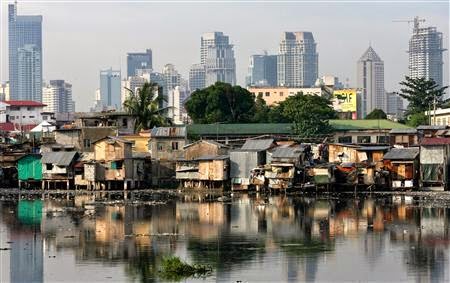In
recent months, I’ve been hooked by this book entitled “Why Nations Fail” which
has greatly influenced my view on the social project we are leading in the city.
It is the great work of two MIT economists named Daron Acemoglu and James
Robinson.
As
shown by an avalanche of historical evidences, factors such as weather,
geography and even culture do not definitively influence growth trajectories of
societies overtime. The whole central thesis of the book is that nation’s fail
mainly because of man-made political and economic institutions that underline
economic success.
Political
institutions primarily create economic institutions. People who hold power over
a society primarily create political institutions. Looking at who holds the power
is the beginning of the development narrative. Is political power held by a
small number of land owning barons? Or is it dispersed to an array of diverse
interests?
The
book dichotomizes these political institutions as either exclusive or
inclusive. Exclusive political institutions mean that it is governed by a
homogenous group who uses the power of the sate to entrench and enrich their
own ruling class at the expense of the broader development of the many. Inclusive
political institutions mean that broader, varied and competing interests are
able to hold power and use the state to enrich a broader population base.
Since
the entrenched ruling class has the incentive and the means to concentrate
power upon themselves, it creates a vicious cycle of corruption and poverty.
Taxes and other policies are used to finance private gain at the expense of
greater societal development. At the level of the common people, there is no
incentive to innovate since at anytime, their innovations might be expropriated
or taxed to destruction by the state.
However,
in certain convergence of historical events, these closed institutions crack up
such as the signing of the Magna Carta in 1215 in England where for the first time,
a sovereign agreed to limit his power.
This
then became a staging point for further political development of England in the
next centuries which ushered broader participation by ordinary townsfolk in political affairs. They were able to draw back the power of the ruling elite
and establish a system of laws that is tilted in favor the common people.
An example, which
would propel England to the world stage in the 18th century, is its
relatively fair and enforceable patent laws. Due to the demand of the common
people to protect their inventions, coupled by a parliament that already has
common representation, these laws were passed with little opposition by vested
elites fearful of innovation.
This
law gives incentives to thinkers such as Sir Isaac Newton to express their
scientific discoveries. It also encourages innovators to invent the steam
engine that ushered in the Industrial Revolution.
As
compared to Czarist Russia at the same time, railroad development was
intentionally halted out of fear that railroads would mobilize the masses
faster, with the ideals of the enlightenment with it. An anxious elite would
use all means and power to stop it from happening but as we later know, their
own neglect was their own undoing.
As a
closing, it was only when a growing conscious and educated working class who organize themselves politically and assert their power within the state structure did
these societies see a dramatic change in policy and direction which ultimately
made prosperity a reality for a majority of the people. Giving the middle class sufficient political power creates a virtuous cycle where the decisions produce policies in its favor which in turn would benefit society overall.
So in the Philippines where the shadow of feudalism cover much of our provinces and cities, when will the middle class grow sufficient in size, knowledge and idealism that will enable it to change the balance of power? I guess, based form the book, it is only then when we can dream of a better Philippines.

